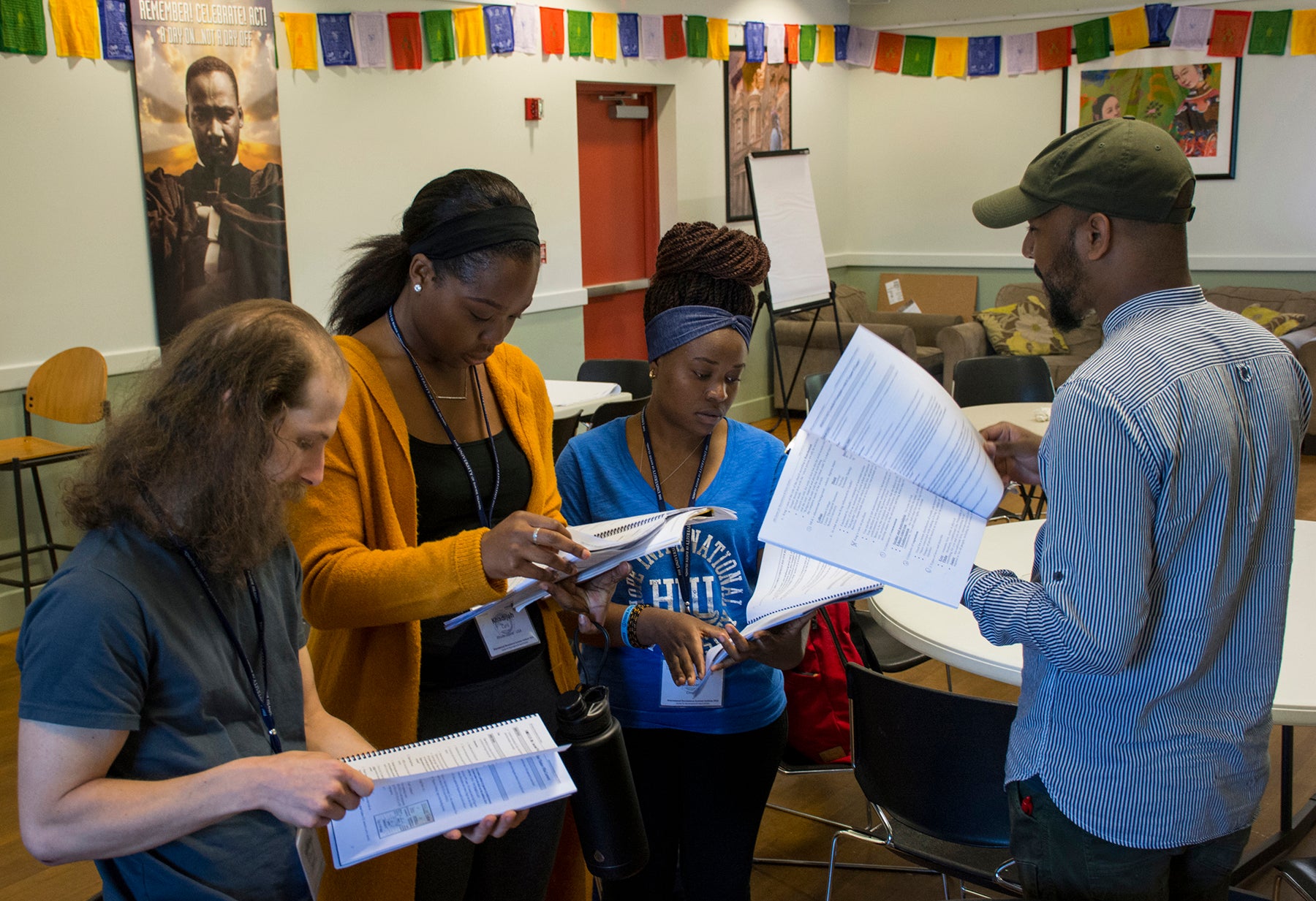KINGSTON, R.I., –June 20, 2018 In 2012, Wendy Bowen was a teacher at Sandy Hook Elementary School in Newtown, Connecticut, when the unthinkable happened. A gunman shot his way into the school and killed 20 first-graders and six staff members. That event changed the course of Bowen’s life.
“My mission is to prevent gun violence by creating a beloved community,” said Bowen, now of Wakefield, Rhode Island. That process, she feels, starts with activism, advocacy and teaching nonviolence principles in schools and municipalities.
Earlier this month, Bowen and two other participants with connections to school shootings joined more than 60 other people from around the nation and the world at the University of Rhode Island’s International Nonviolence Summer Institute. Bowen said the Institute has helped her heal and given her the tools needed to make a difference far beyond URI. “This community, we just love each other,” Bowen said. “We’re all doing this work together. I really believe the only way we’re going to make a difference is to create a community amongst ourselves and in schools so that we can support one another.”
The participants received advanced leadership training in Kingian nonviolence conflict reconciliation from Bernard LaFayette, a civil rights leader and friend of Martin Luther King Jr. LaFayette founded the Center for Nonviolence and Peace Studies in 1998. Participants learn nonviolence teaching and tactics that they can apply to their own communities. That broad reach is something the Institute has provided to hundreds of people since it began offering nonviolence training 19 years ago.
“In Level II trainings, participants learn how to establish institutions and ongoing training programs,” LaFayette said. Participants incorporate those strategies into other institutions, like prisons, school systems or even industries. Some are even directed toward political leaders to persuade them to pass laws and policies to help underserved people.
“Nonviolence training helps people to identify types of violence in a physical sense,” LaFayette said. “But we in our teaching help people to understand contributing factors that propel people to use gun violence. They are in pain. People who perpetrate gun violence are also people who feel pain or hurt within themselves.”
Mona Benton of Galveston, Texas, is a mental health counselor who served on the Galveston County Critical Incident Stress Management team following the Santa Fe (Texas) High School shooting in May. After receiving Level I training at the Summer Institute last summer, Benton began working with incarcerated veterans.
“I’ve had the chance to go through a whole year of curriculum and really see it impact even those in jail,” Benton said. “I’m a believer, for sure.”
She and fellow workshop participant Theresa Haak, a middle school teacher in Santa Fe, brainstormed ways to bring nonviolence training to Santa Fe and surrounding communities.
Haak appreciates the support and solidarity she’s found at the Summer Institute and hopes to instill those values in her fifth-grade classroom in the fall. “This training is going to ground me and help me be ready, so I’m really grateful for that,” Haak said. “Being here is a blessing.”
Emma Gauthier, a writer in URI’s Office of External Relations and Communications, wrote this article.

